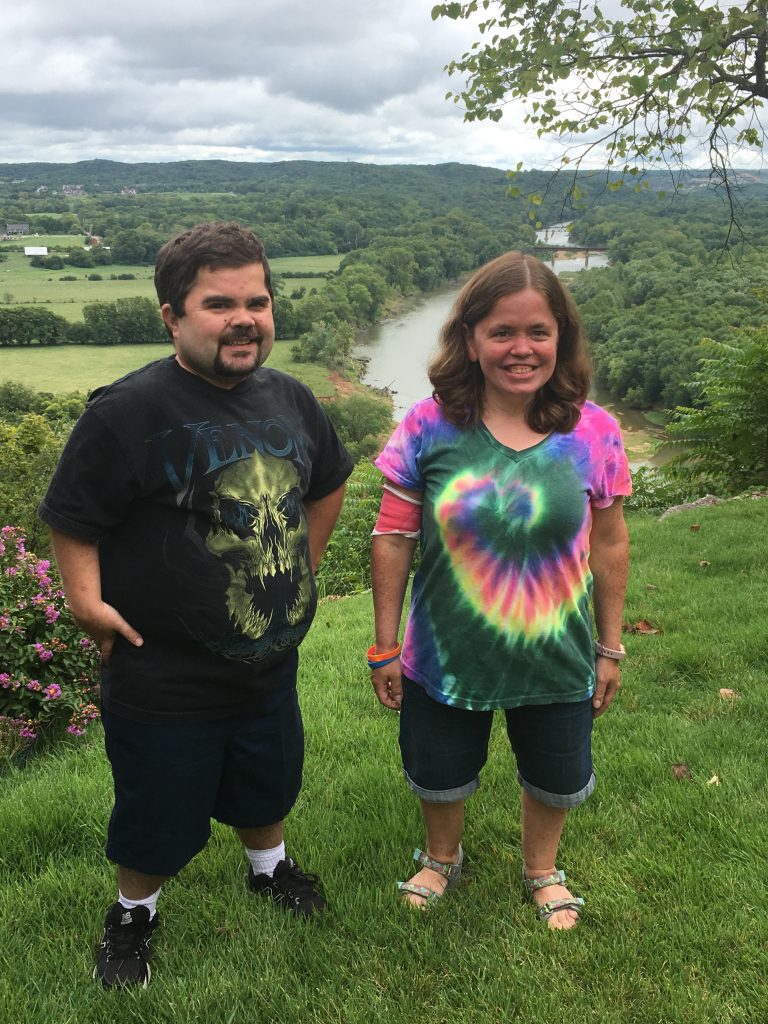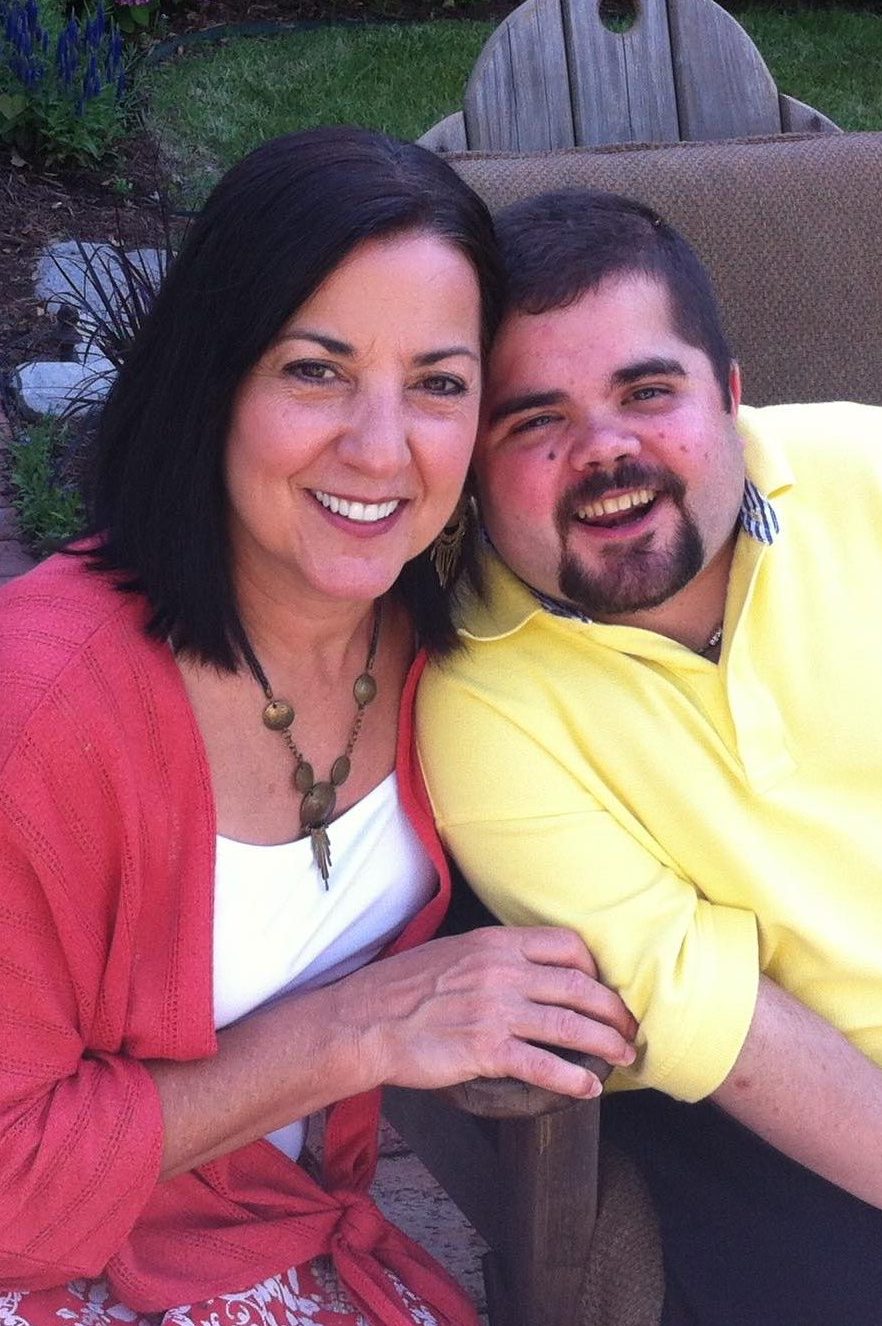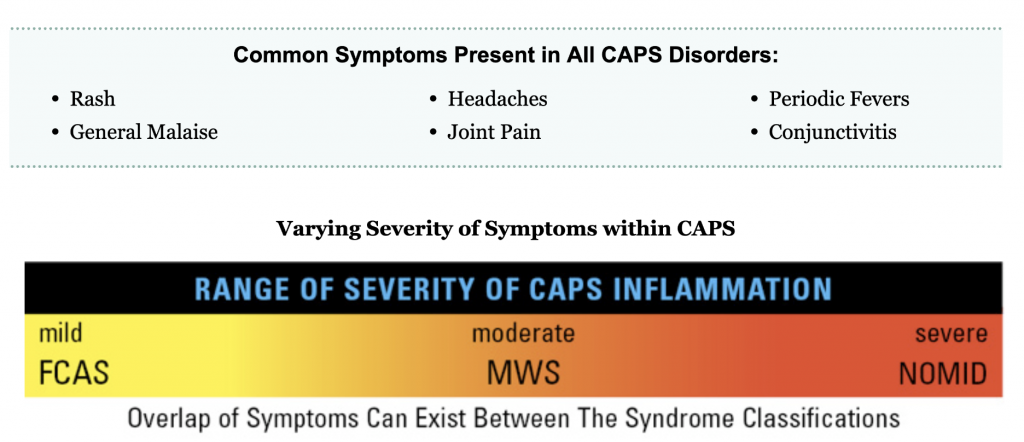Cryopyrin associated periodic syndromes (CAPS) are rare, lifelong autoinflammatory diseases. Patients suffer from almost daily rashes with flares of symptoms and systemic, chronic inflammation that can range from mild to severe, often from infancy onwards. (There are a few adult-onset cases). Prior to the genetic discovery of the NLRP3 (CIAS1) gene in 2001, there were three diseases that were once thought to be solitary conditions, known as Familial Cold Autoinflammatory Syndrome (FCAS), Muckle-Wells Syndrome (MWS) and Neonatal Onset Multosystem Inflammatory Disease (NOMID)–aka Chronic Inflantile Neurological Cutaneous Articular Syndrome (CINCA).

The genetic findings linking FCAS and MWS to NLRP3 (CIAS1) gene mutations (autosomal dominant mutation) in 2001 led to new discovery that these conditions were not distinct, separate diseases, but diseases on a spectrum, with FCAS having less chronic or systemic damage and MWS with more systemic involvement, including hearing loss, higher risk for amyloidosis, and other organ involvement. In 2002, doctors in France and in the US discovered that NOMID/CINCA patients had NLRP3 (CIAS1) gene mutations (autosomal dominant) that caused the more severe form of CAPS, causing multi-system involvement and damage, due to chronic, severe inflammation.
The term Cryopyrin Associated Periodic Syndrome (CAPS) was coined later to include all forms of cryopyrinopathies, so FCAS, MWS and NOMID/CINCA are now also referred to as CAPS. The newest term for CAPS is NLRP3-associated autoinflammatory disease (NLRP3-AID) with the sub-classification of mild, moderate or severe to distinguish the severity of the disease presentation in the patient.
Once the genetic findings for CAPS were found, researchers were then able to discover that CAPS symptoms were largely due to Interleukin-1β (Il-1β) over-production due to an NLRP3 genetic mutation causing chronic activation of the innate immune system in a patient, via the NLRP3 protein–a key driver of CAPS inflammation. This understanding led to medication clinical trials and new drug development to control this chronic over-production of Il-1β in patients with all forms of CAPS. Now there are 3 FDA approved treatments for various forms of CAPS in the US. Two of these medications are available outside the US, and some are now approved for use for other autoinflammatory diseases. These medications have changed, and even saved many lives of patients with CAPS, and autoinflammatory diseases.
It has now been 20 years since this genetic discovery! Here is a wonderful medical paper, entitled Diagnosis and Management of the Cryopyrin-Associated Periodic Syndromes (CAPS): What Do We Know Today? by Dr Tatjana Welzel and Prof/Dr Jasmin B. Kuemmerle-Deschner that came out in January 2021. It summarizes the current state of CAPS research, symptoms, genetics (including somatic mosaicism, and variant NLRP3 mutations) and treatment.
“With the availability of anti-IL-1 treatment, the prognosis of patients with CAPS has improved considerably. However, early and aggressive treatment is crucial to improve quality of life and to avoid organ damage. Only an early start of treatment will prevent organ damage and avoid progress. Furthermore, starting treatment early can result in reversibility, for example, of hearing loss.” –Dr Welzel and Professor/Dr Kuemmerle-Deschner
Please watch these videos from Alice and Zach, two amazing people that have NOMID/CINCA, who were some of the first known patients at the NIH, who also were trailblazers for the clinical trials for treatments for this severe form of CAPS. They endured their childhood and teen years with this disease, before targeted treatments were available, and are remarkable people. They shared their story recently to raise awareness.


Karen Raymond recently shared her story in a wonderful podcast on The Edge: Conversations from the Institute for Bioscience (IMB) at the University of Queensland, Australia. She struggled for decades undiagnosed, along with her father. Her story of getting a diagnosis, treatment, and what her life has been like on treatment is inspiring. Once she was diagnosed with the form of CAPS known as Muckle-Wells Syndrome (MWS, aka NLRP3-AID moderate), and onto helpful treatments, she was able to pursue her dreams become a scientist, and has been working in the lab with IMB’s Centre for Inflammation & Disease Research to help unlock more mysteries for autoinflammation and immunedysregulation.
Learn more about CAPS below, with information from our website and medical autoinflammatory-search.org database of autoinflammatory diseases

Features of FCAS (NLRP3-AID mild), in addition to the common CAPS symptoms (above):
| Symptoms are often triggered by cold or cooling temperatures: Hearing loss and amyloidosis is not common for FCAS, but there is more risk for this damage from chronic inflammation in other forms of CAPS (see MWS and NOMID/CINCA). | |
| Large family groups w/ FCAS for many generations-most in N. America | |
| NOT Acquired Cold Urticaria, (ACU) – aka “allergy to cold” Urticaria-like rashes may become present after triggered flares, or may become more pronounced if the rash is more chronic/persistent Negative ice cube test, and the rash, and flaring is not immediate in FCAS, but presents over an hour later in many cases. |
Features of MWS (NLRP3-AID moderate), in addition to the common CAPS symptoms (listed above the spectrum image.)
| Symptoms are often triggered by cold, stress or unknown factors Urticaria-like rash may be more chronic/persistent, but it may become more pronounced during flares. More chronic inflammation. Negative ice cube test, and the rash, and flaring is not immediate in FCAS, but presents over an hour later in many cases. | |
| Many large family groups with MWS for generations around the globe. | |
| Progressive, significant sensorineural hearing loss, noted in adolescence-may be present in some children w/ more severe MWS. Some have notable eye issues from chronic inflammation If untreated, high risk for developing amyloidosis from elevated serum amyloid |
Features of NOMID/CINCA (NLRP3-AID severe), in addition to the common CAPS symptoms (listed above the spectrum image.)
| Almost constant flaring, w/ chronically high inflammatory lab values Urticaria-like rash is very chronic/persistent, but it may become more pronounced during flares. | |
| Some have notable eye issues from chronic inflammation Papilledema – from increased intercranial pressure on the optic nerves | |
| Joint involvement: 50% w/ bony overgrowth & enlarged kneecaps Many may have craniofacial features, like a saddleback nose, frontal (forehead) bossing, failure to thrive, growth delay (height/weight) | |
| Chronic aseptic meningitis – from inflamed tissues surrounding the brain. Mental, cognitive and physical deficits or delays can occur, but damage or delays may be reduced w/ early diagnosis & treatment. | |
| Progressive sensorineural hearing loss, starting in early childhood | |
| If untreated, risk for developing organ damage, 1:5 risk of death before adulthood, amyloidosis from elevated serum amyloid |
This is a nice video about a patient with the severe form of CAPS, known as CINCA in Europe and the UK, and NOMID in other parts of the world. This patient is a teen, and the doctors also discuss their process for transitioning patients from pediatric to adult care.
Make sure to also read Alex’s story from the NIH Director’s Blog Meet Alex-Before and After NIH Trial” as his family were some of the first sharing info and helping families online that were seeking information about NOMID/CINCA. They helped so many of us to find others, and the NIH, and inspired us to start our organization too.

Here is the story of Kayla, a patient with NOMID/CINCA from 2014, that shows how research at the National Institutes of Health (NIH), including the Translational Autoinflammatory Disease Studies Institute (TADS) at the NIAID has helped autoinflammatory patients, including many with the severe form of CAPS, known as NOMID/CINCA (aka NLRP3-AID severe). Her mother, Dorelia Rivera is on our Autoinflammatory Alliance Board VP, and our policy lead for the organization.
We also want to share this video from Paul Rivere, that suffered decades from MWS, along with other members of his family, before he was diagnosed. He founded the French AMWS-CINCA CAPS organization in France, around the time when we started our org, and he was an inspiration to us all. Their yearly patient gatherings and advocacy with the start of RareConnect CAPS community in 2009, made a great impact. We honor his memory by sharing this video, and are thankful for the years of collaboration and friendship with him, and his family too.
Thanks to all the patients, doctors, scientists, caregivers and family members for your inspiration, support and dedication. We greatly appreciate you all!
Learn more about CAPS, and other autoinflammatory diseases on this blog, on autoinflammatory-search.org or on our website, where you can also download a printable CAPS guidebook in English or Spanish, and we accept donations anytime. Thank you!

